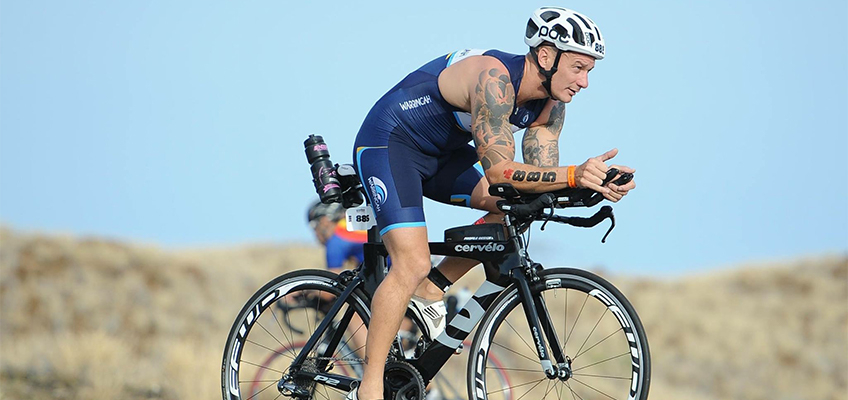17 Dec 2014

HEIDI DOUGLASS | h.douglass@unsw.edu.au
CHeBA Champion Warren King has a gruelling training regime for the 2015 Asia Pacific Ironman, an event at which he hopes to raise public awareness and money for dementia research. Since becoming a CHeBA Champion in 2013, Warren has fundraised for dementia research at a number of events, but the Asia Pacific Ironman on March 22 will be his biggest challenge yet.
Warren began triathlon training in 2012, at which point he says he was “a terrible swimmer, hadn’t ridden a bike in years and was an occasional runner”. A family history of Alzheimer’s disease and the growing scale of dementia in Australia, however, motivated him to push himself in his role as a Fitness Ambassador for the Centre for Healthy Brain Ageing (CHeBA).
“It's a very important issue that needs to be addressed better than it currently is by the government. Alzheimer's and dementia are going to reach epidemic numbers in the next 30-50 years if something doesn't change. Research is severely underfunded if we are going to get results and help an ageing community,” he says.
“With that in mind, I figured I'd better do something worthwhile to raise money for CHeBA’s research. In March 2015, I will be competing in the Asia Pacific Ironman in Melbourne. It’s by far the biggest challenge I've ever taken on. It will be a 3.8km swim, 180km bike ride and 42km run. I'm aiming to complete it in 11 hours!”
As well as greater research investment, Warren highlights the importance of education and modifiable lifestyle changes to reduce dementia risk from an early age.
“I certainly think the government should invest more money into research. I also think dementia and Alzheimer’s disease doesn't get enough media coverage and support given its impact on the population.
In total, Warren will have trained six days a week for six months for the event.
“I’ve employed the services of a coach who writes a program for me every week. As we go on the sessions get tougher and longer,” he says. “I have three swim sessions a week, three run sessions and three bike sessions. Up at 5 am, six days a week to train before work and I also train Tuesday and Thursday evenings, so it's pretty full on.”
